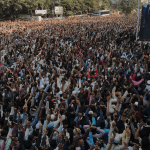Imam Dr Sayed A.F.M. Monjur-E-Khoda
Abstract: Salat (prayer) is the most important pillar in Islam. Five times prayer in a day is compulsory for a believer. We consider prayer as the best worship. So, under which method Salat may be more effective and turned as the best performance is very important for every Muslim. Allah in the holy Quran says, “Seek (My) help with patience and through prayer.’’(Surah Al Baqarah 2: Verse 45). The Great Prophet Hazrat Mohammad (Sm) said: “Assalatu Mrajul Mumenin”- It means Namaz is the meraj (meeting) of Allah for the believer. The Great Lord Allah taught His bandah (human being) the best method of seeking His help through prayers. The method through which prayers will be accepted to Allah has been announced in the holy Quran, “They have been commanded to worship Allah in pure mind with sincere devotion and to establish regular prayer and give zakat.That is the religion right and straight.’’(Sura Al Baiyinah 98: Verse 5)
Keywords : Salat, Namaz, Hakikat, Meraz, Bandah, Kirat, Ahamadi, Mumin, Ummat.
Introduction
The Great Scripture Al Quran is the Complete Code of Life. From the birth of the death of a man, commands and prohibition, rules and regulations in all matters necessary for life have been given in it. How a man will behave with his parents, relatives and neighbours, wife and children, the directives on these matters have been given in the holy Quran. If we review the aforesaid verses, we get the following prerequisites for correct offering of prayers that are equally applicable there: Obedience to Allah or submission to Allah; Pure mindedness or self-purification; Single-mindedness or continuous concentration.
Hazrat Rasul (Sm) says; “Certainly when a believer sets him in prayer, he converses with his Lord.’’ As prayer is the medium of bandah’s meeting with Allah, the meeting should be polished. So the Great Reformer of the Age Sufi Samrat Dewanbagi Hujur Qibla says: Since prayer is the Praise of Allah and from His servant it is an appeal, it is the best way to recite from the holy Quran, the verses of entreaty after the Surah Fateha. As the verses of the holy Quran have been revealed on different subject in different conditions and situations, in them somewhere there are commands and advice, commandment and prohibition, and verses of appeal. Since prayer is worshipping Allah, recitation of the verses of appeal after the Surah Fateha is more logical and virtuous act.
Best Method of Establishing Salat
The holy Quran has mentioned how the Prophets and Rasuls would have offered prayers. Following that method if we offer prayers with verses of appeal, we will be able to easily attain the Mercy and Pleasure of Allah. Some of the verses of appeal have been mentioned here; “O (our) Lord! Let not our hearts deviate after You have guided us, and bestow on us Mercy from you. Certainly you are the Great Bestower. (Surah Ale Imran 3: Verse 8) “O (our) Lord! We have wronged ourselves; if you do not forgive us and do not bestow on us. Your Mercy, certainly we shall be lost.’’(Surah al A’raf 7: Verse 23) “O (our) Lord! Give us that, which is good in the world and good in the Afterlife, and save us from the doom of the Fire.’’(Surah Al Baqarah 2: Verse 201)
On proportionate joining of kirat (recitation from the holy Quran in a special tone) with Surah Fatiha in prayers, the opinion of the Fiqah (profound knowledge) experts is- a big verse or 3 smaller verses from any Surah of the holy Quran to be added.
On recitation of the verses of the holy Quran in prayers, Allah Ta’la says: “Recite, then, of the Quran that much is easy for you (in prayer).’’(Surah Al Muzzammil 73: Verse 20)
Therefore, in prayers connecting of the verses of appeal with Surah Fatiha by Sufi Samrat Hazrat Deqanbagi is in accordance with Islamic rules.
Salat for Truth
On describing the Hakikat (reality) of prayers, Sufi Samrat Hazrat Dewanbagi Hujur says: In the five pillars of Islam, prayer stands second. After Kalema or Iman (faith) comes the place of prayer. Prayer is mandatory for every healthy and adult Muslim-man and woman. The rules of prayer had been introduced to the Muslims after Hazrat Muhammad (Sm) went to the Meraz (Meeting with Allah) at the age of 52. When he reached the venue of the Meraz, Allah the Magnificent asked him: O my friend! I have brought you here on an invitation. What have you brought for Me? Hazrat Rasul (Sm) replied, “All courtesy, honour, and worships and prayers, all pure glory and fame are for Allah, towards only Allah.’’ Being very pleased at this reply, Allah Ta’la thanked His friend and said: “O Prophet!Peace be on you and immense Blessings and Bounties of Allah be showered (on you).’’ Remembering his followers, Rasul (Sm) of Allah said: “Peace be showered on us and all pious servants of Allah from Him.’’ After that Allah Ta’la, to shower His Blessings on the Ummat-e-Muhammadi (followers of Muhammad-Sm), has introduced the provision of prayers by creating the opportunity of meeting Allah. In this way the conversation that begins between Allah and his servants is called Salat. Hazrat Rasul (Sm) says, “For a believer prayer is the Meraz.’’ It means — he is called a mu’meen (believer) who has sworn faith (in Allah). And the mu’meen is able to meet Allah in prayers by attaining Meraz as Hazrat Rasul (Sm) did. Therefore prayers the Ummat-e-Muhammadi gets the opportunity to converse with Allah by making communication with Him.The best opportunity for wishing and getting from Allah is prayer. To properly offer mandatory prayers there are some specific methods. The holy Quran says, “Establish regular prayers; certainly prayers restrain from obscenity and sinful activities.’’(Surah Al Ankabut 29: Verse 45)
But we see the opposite situation in the prevailing system of prayer. It means, we offer prayers but we tell lies, cheat people, pick quarrel with others. Prayers do not desist us from evil deeds we see. Is the Quran of Allah false? Allah forbids! If we analyse its cause, we see that in reality we do not follow the method Allah has given us. We just offer prayers without giving importance to it. Consequently prayers do not cease us from committing sins. As our prayers are not accepted (by Allah), having offered them we do not get any result.
We say standing in prayer: “We worship you (alone), we ask you for help.’’ When we utter this, our mind remains engaged in worldly thinking-how much money I will get from a person where I have left some business, etc. If this type of thinking appears in mind in that situation, it will be straightway shirk (make partner with Allah). Allah Ta’la in the holy Quran says: “Whoever wishes for the meeting with his Lord, let him do righteous work and make none partner of his Lord in the worship.’’(Surah Al Kahf 18: Verse 110)
Making ablution, we come running to offer prayer for the pleasure of Allah but in presence of Allah reciting the holy Quran we think of a friend. Consequently this prayer is not acceptable to Allah. In the holy Hadith, Hazrat Rasul (Sm) says: “Without the concentration of mind prayer is not accepted.” He further says: “He is the most notorious thief who commits theft in prayer.” The holy Qur’an says “Oh, the hell Wail is for those worshippers who are unmindful of their prayers.” (Surah Al Ma’un 107: Verses 4-5)
Therefore, this type of prayer cannot give us good results. Prayer will give us desired results when it is truly offered. At beginning of Islam the Great Prophet Hazrat Muhammad (Sm) was the Imam or Leader of the prayers. The Companions after keeping in touch with Rasul (Sm) would have become free from the provocation of Satan with his acute spiritual power and offered prayer with the concentration of mind.
When the Sahaba-e-Keram offered prayer keeping them in touch with Hazrat Rasul (Sm), concentration would have prevailed. Because the great power of Elm-e-Tasauf (Spiritual Knowledge) remained hidden in Hazrat Rasul (Sm). As we have given up that Spiritual Knowledge, only outward formality is existing in worship. We have utterly forgotten that Allah is seen in prayers by expressing love for Him. Even we cannot think now that Allah can be communicated in prayers.
If anybody quoting the holy Hadith says- for a believer prayer is the Meraz with Allah, it is said- yes, it will take place at a certain time through offering prayers.
The question arises- I have started offering prayers at the age of 12 and have reached 80; but I did never see Allah in prayers-shall I see Him after death? What type of prayers have I learned if I do not see Allah? In fact, the great man who knows the method of seeing Allah and has learned to maintain communication with Him, we have to learn prayers keeping in touch with him (great man) and implement them in us. Actually, if you can attain the character of prayer, it (prayer) will desist you from all sins.
The holy Qur’an says-Establish regular prayers.” Prayer is not a subject of reading. It is a matter of practice. When you will offer prayers with the limbs and organs having united the body and the mind, the Ahmadi Character will bloom in you. In fact, prayer teaches man attaining the Ahmadi Character. And to attain this Ahmadi Character prayers have been made mandatory for the Muslims.
Regarding this let us put an example of the position in prayer-when we stand at a prayer, it looks like the Arabic letter ‘Alif’; when we bow head and body, it looks like the Arabic, letter ‘Ha’, when we go to prostration, it looks like the Arabic letter ‘Mim’, and when we sit, it looks like the Arabic letter “Dal’. In this way the composition of the letters ‘Alif-Ha-Mim-Dal’ is ‘Ahmad’. It means attaining the character of Hazrat Rasul (Sm), and swearing obedience to Allah by completely sacrificing egoism. The holy Qu’ran says: “The Messenger of Allah is an excellent ideal for you.” (Surah Al Ahzab 33: Verse 21)
When Ahmadi Character will blossom in you, certainly Meraz (meeting with Allah) will take place in your prayers. Setting for prayers, we have to sacrifice arrogance and egoism having surrendered to Allah and have to prove that we are the followers of Hazrat Muhammad (Sm).
Conclusion
If you can learn prayer keeping in touch with a great man who has cleansed sins through properly offering prayers and made communication sins by achieving good results of prayer.
At first Hazrat Rasul (Sm) used to lead prayers to teach his Companions the method of prayer. After that Hazrat Abu Baqr Siddiq (Ra), Hazrat Omar (Ra), Hazrat Usman (Ra) and Hazrat Ali (Ra) led prayer. They have also taught others the method of prayers. As a result Ahmadi Character has bloomed in man having learned the method. He who possess Ahmadi Character, his qualities are not only limit in prayers, in every place of society Ahmad, that means, the qualities of Hazrat (Sm) are expressed through him. It is like attar (perfume).
Wherever it can be taken pouring in a phial from a drum, its fragrance will not very. So, if you attain the Ahmadi Character, the peace one will have when he goes to the Rowaza of Rasul (Sm), he will also enjoy that peace having come to you. You will not create disturbance, nor will any creature on the earth get trouble from you.
Therefore, if you can achieve the key or method or skill by serving the great men to whom the key to making communication with Allah has been entrusted, the door of your heart will open to have it (communication).
May Allah give us the ability to offer genuine prayers.
References
- Holy Quran
- Holy Hadith
- Tafsire Sufi Samrat Dewanbagi, Vol. I to Vol. VIII; Sufi Samrat Hazrat Syed Mahbub-e-Khoda Dewanbagi
- Sufi Samrater Jugantakari Dharmyo Sangskar, 1st st ; Sufi Samrat Hazrat Syed Mahbub-e-Khoda Dewanbagi
- An Unpublished Thesis “Baba Dewanbagi from Eid Crescent Fullmoon: A Tasauf based Analysis”, Dr. Sayed A.F.M. Monjur-e-Khoda
- An Unpublished Thesis “A Study on Philosophy of Sufi Samrat Dewanbagi and Its Implications in Society”, Dr. Syed Mehadi Hasan
- An Unpublished Thesis “A Scientific Analysis of Religious Philosophy of Sufism as Reflected by the Miracles of Sufi Samrat Hazrat Dewanbagi”, Asst Professor, Dr. Muhammad Nasir Uddin.




